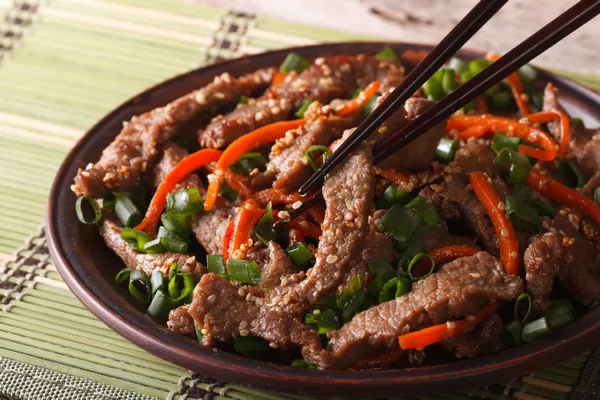Beef is a popular protein source enjoyed by people around the world. In recent years, Chinese beef has gained recognition for its exceptional tenderness, captivating the palates of both locals and international food enthusiasts. The question arises: What makes Chinese beef so tender? This article explores the factors contributing to the unrivaled tenderness of Chinese beef, ranging from cattle rearing practices to culinary techniques.
1. Cattle Rearing Practices:
Chinese beef’s tenderness can be attributed, in part, to the cattle rearing practices employed in China. Traditional Chinese methods focus on raising cattle in a stress-free environment with ample space to roam freely. This approach allows the animals to develop muscles naturally, resulting in beef with improved tenderness and flavor.
2. Breeding Selection:
Selective breeding plays a crucial role in enhancing the tenderness of Chinese beef. Chinese farmers have historically prioritized breeds such as Qinchuan, Yanbian, and Luxi, known for their superior meat quality. These breeds have been carefully selected and bred over generations to produce beef that is marbled with fat, a key factor in determining tenderness.
3. Diet and Nutrition:
The diet of cattle significantly impacts the tenderness of their meat. Chinese beef benefits from a diverse and balanced diet that includes a combination of natural pasture grazing, supplemented with locally-grown grains, legumes, and high-quality forage. This well-rounded nutrition contributes to the development of intramuscular fat, which enhances tenderness, juiciness, and overall flavor.
4. Aging Techniques:
Another factor contributing to the tenderness of Chinese beef is the meticulous aging process employed by Chinese chefs and butchers. After slaughter, the beef is carefully stored in temperature-controlled environments for a period of time, allowing enzymatic activity to break down connective tissues and improve tenderness. This aging process results in beef that is exceptionally succulent and tender.
5. Culinary Techniques:
The art of Chinese cooking plays an essential role in maximizing the tenderness of beef. Chinese chefs employ various culinary techniques, such as velvetizing and stir-frying, to ensure optimal tenderness. Velvetizing involves marinating thinly sliced beef in a mixture of cornstarch, egg whites, and other seasonings before quickly blanching it in boiling water. This technique helps to preserve the meat’s moisture and tenderness. Stir-frying, on the other hand, utilizes high heat and rapid cooking to seal in the juices and maintain the beef’s natural tenderness.
6. Traditional Meat Tenderizers:
Chinese cuisine has a long history of using natural meat tenderizers derived from plant sources. Ingredients like papaya, kiwi, pineapple, and ginger contain enzymes that break down proteins and collagen, resulting in enhanced tenderness. These traditional tenderizers are often used in marinades or rubs, imparting both flavor and tenderness to Chinese beef dishes.
Conclusion:
The exceptional tenderness of Chinese beef can be attributed to a combination of factors, including cattle rearing practices, selective breeding, diet and nutrition, aging techniques, and culinary expertise. The holistic approach to beef production and preparation in China results in meat that is not only tender but also flavorful and highly sought after. Whether enjoyed in traditional Chinese dishes or modern culinary creations, Chinese beef continues to captivate taste buds around the world with its irresistible tenderness.

